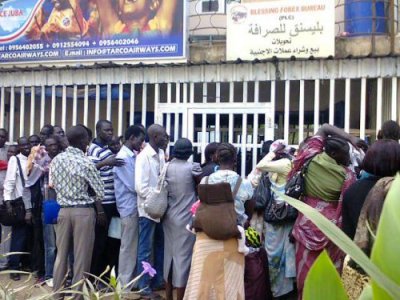South Sudan bank unveils new regulatory policies
July 30, 2017 (JUBA) – The central bank of South Sudan has announced new monetary policies seeking to avoid more inflation, regulate trading in foreign currency and combat money laundering and financial crime

Ajak presented the new measures as part of the monetary policies developed last May to control inflation, combat financial crime and support the existing monetary policies.
The new policies, he said, advocate the adoption of new anti-money laundering policy, which will guide the bank in establishing any business relationship with other financial institutions and another policy seeking to strengthen transaction in foreign currency among others.
The foreign exchange policy requires all business entities and organizations to open special accounts with the central bank for foreign exchange transactions.
“The new policy is for the interest of the public. It is a policy aiming at how best to better manage foreign exchange proceeds, resulting from the purchase of foreign exchange from the accounts relating to UN agencies, international Non-Government Organizations, oil companies and others,” said Ajak.
Ajak further disclosed that all licensed financial institutions have been directed to implement the new directives immediately.
South Sudan depends on oil revenue for 98 percent of its budget, but production decreased significantly due to the civil war that erupted in December 2013, causing most oilfields in the country’s oil-rich northern region to shut down.
This led to a fall in production to less than 130,000 barrels per day (bpd) from 350,000 bpd in 2011.The young nation is struggling with hyperinflation amid shortage of foreign reserves to support imports
The government through the management of the bank and the ministry of finance and other economic institutions in the country announced in May that it would engage in major restructuring and reformation of its system and financial sector in a bid to combat the biting economic crisis.
The new strategies, approved by the council of ministers, advocates for strengthening financial sector regulation, supervision, adaptation of a sound exchange rate policy, public debt management and developing a financial regulatory framework that is compatible with international standards.
(ST)
